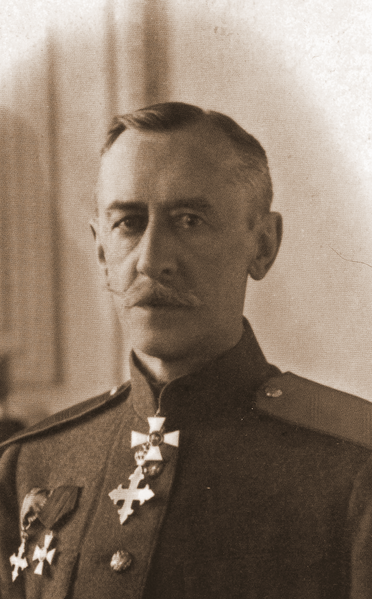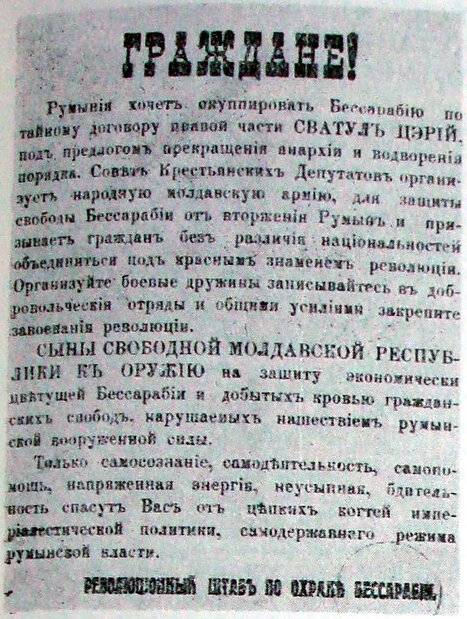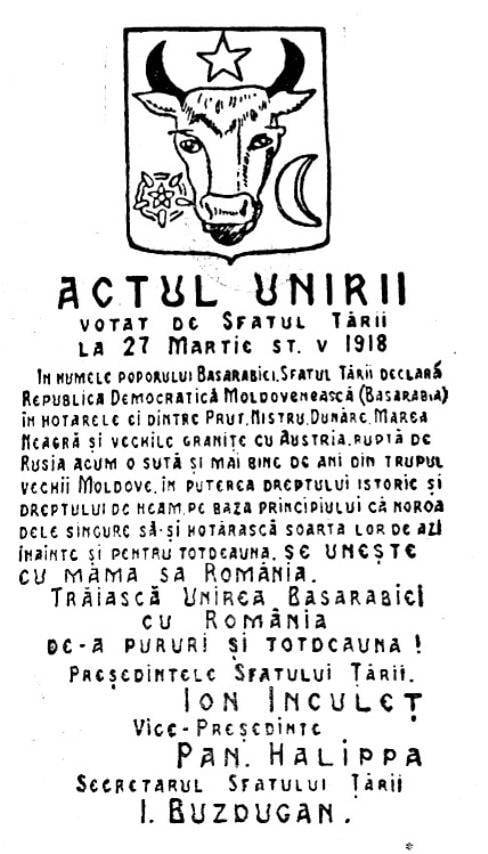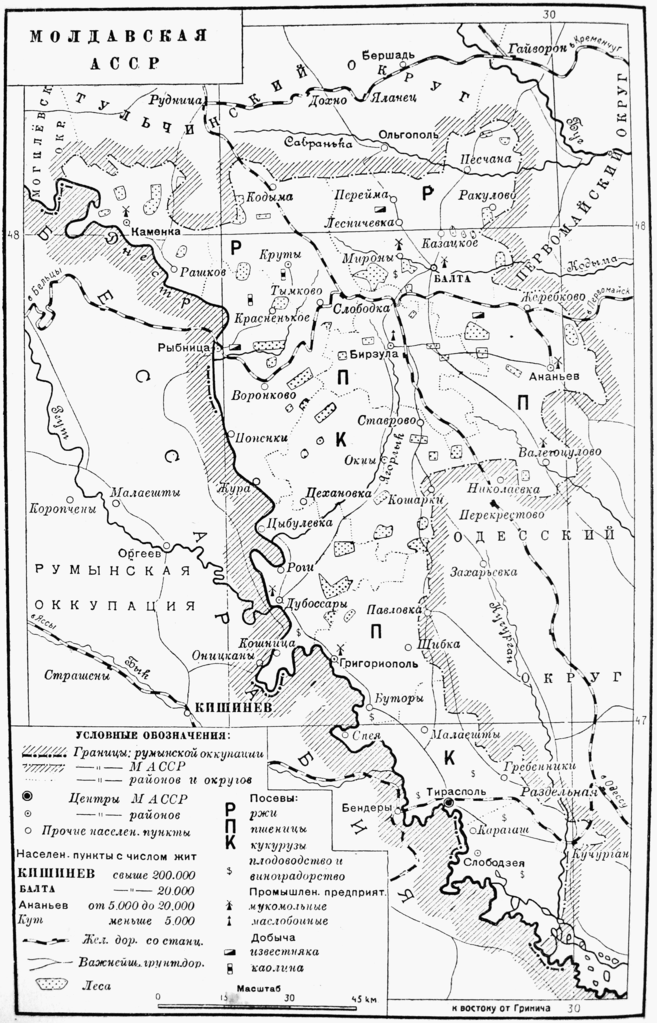How Romanian executioners exterminated Russian soldiers
Romanian Front after October
The situation on the Romanian front, as on other fronts, showed that the Provisional Government does not really have support from the people and the army. Of the four armies (8-I, 9-I, 4-I and 6-I), which held positions from the Black Sea to Bukovina, there were no troops to be sent to Moscow. The High Command requested 6 battalions, 6 hundreds of cavalry and 18 guns. For the front numbering hundreds of thousands of fighters, this was quite a bit. But the headquarters did not receive a single soldier. On the Romanian front, as opposed to the Socialist-Revolutionary and Menshevik committees, Bolshevik committees are actively being created. Soldiers approvingly of the decrees on peace and earth. No longer wanted to fight.
Central Executive Committee of the Councils of the Romanian Front, Black Sea fleet and Odessa (Rumcherod) also became Bolshevik. The 2nd Front and Regional Congress of Soviets in Odessa on December 10-23, 1917 (December 23, 1917 - January 5, 1918) recognized Soviet power and elected a new 180-member Rumcheroda. The new convocation included 70 Bolsheviks, 55 Left SRs, 23 representatives of peasant organizations and 32 representatives from other factions. The chairman of Rumcheroda was the Bolshevik Vladimir Yudovsky.
Front Commander DG Shcherbachev did not accept October. With the consent of the French, he began separate from Brest-Litovsk, negotiations with the enemy. The Romanian command supported him. The negotiations ended on November 26 (December 9) 1917 of the year in Focsani with the conclusion of a truce between the combined Russian-Romanian and German-Austrian troops. In order to preserve military power, the departure of the soldiers of the most revolutionary units to their collapse was encouraged. Those parts, which could count "white", tried to save. It was planned to form a corps of Russian volunteers to be sent to the Don, where opponents of Soviet power flowed. In addition, on the Romanian front actively created national units - Ukrainian, Moldavian, Polish, Belarusian, Georgian, Armenian, Cossack. Thus, there was a split in the soldier’s mass on a national basis.
In November, 1917, Shcherbachev supported the decision of the Ukrainian Central Rada, which proclaimed the independence of Ukraine, to unite the forces of the South-Western and Romanian fronts into the “Ukrainian Front” and was appointed commander of this “front”. The Bolsheviks opposed these treacherous actions. Then Shcherbachev appealed to the Romanian leadership with a request to help defeat the "Bolshevik nest" in Sokol. Diplomatic representatives and military missions of the Entente in Iasi supported Shcherbachev. The Romanian government, on the night of 8 on December 9, held a meeting and agreed. At dawn, the Falcon station, where the Russian railway brigade was located, was blocked by Romanian troops. The Romanians disarmed the Russian soldiers, shooting those who resisted.
It was only the first step in the final destruction of the Russian Romanian front, as an organized force. After the truce, Russian divisions were removed from the front one by one. It seemed that you just need to miss the troops tired of the war and eagerly rushing home. The Romanian leadership was still afraid of the Russian army. The Romanians were ready to “agree” with the Austro-German leadership. And the departure of the Russian troops to the rear, where they fell under the influence of the Bolsheviks, struck plans for both the Romanian elite, which was already eager to profit at the expense of Russia, which was in full swing, and the Entente and the "white" movement, who wants to regain power. In addition, the Romanians wanted to profit at the expense of Russian troops. Weapon, ammunition, ammunition, various materials, all this was of great importance in the ongoing war and future intervention.
The rulers of France, England and the United States were interested in inciting the Civil War in Russia, and tried to support all the anti-Bolshevik centers of resistance - white and nationalist. The masters of the West have already divided Russia into spheres of influence, the future semi-colonies-bantustans, and now they had to fill the Russian land with blood, to bleed the Russian people, to destroy the Russian communists, who had a project to create Soviet Russia.
December 11 Moldova, with the exception of Iasi, was divided into 8 military zones under the control of the General Staff and Shcherbachev. The Romanians knew very well about the movement of the Russian troops during the withdrawal and even about their plans. When the Russian headquarters were authorized Romanians from Siguranz (secret police), who reported on each step of the retreating Russian divisions and regiments. Quantitatively, the Russian army was stronger, but no one expected such a surprise from the "allies." Russian soldiers only wanted free access and food. Revolutionary committees also wanted to settle the matter with the world, underestimating the threats. Thus, the 6 Army Committee even sent its representatives to the Romanian king. Delegates talked with Ferdinand and the head of the headquarters of the Romanian army, Presan. They were assured that the Romanians "do not interfere in the affairs of the Russian army." But these were just words that made Russians talk. So that the Russians could not organize resistance. In the meantime, the Romanians detained supplies destined for the Russians, the main roads were occupied by selected troops. The Romanian troops had an order from Shcherbachev to disarm the retreating Russian divisions.
As a result, the stunned Russian troops, who were set up by their own command and the "allied" Romanians, did not dare to resist and fight through to their homes. “Why ... After all, in fact, didn't the Bolsheviks declare war on the war? Didn't they tell you to fraternize with enemies? After all, the Romanian soldiers are the same peasants as the Russians. The “compassionate” comrades got entangled in this matter, ”wrote L. Degtyarev, a participant in those events. They laid down their weapons, believing the promises of the Romanian command that they would be allowed to go home. Some were disarmed and driven to concentration camps. Many people were shot, others were severely beaten. Others died of hunger and cold. The rest, left without weapons and food, were forced to go to Russia in a severe frost. It is clear that the retreat of a completely demoralized, deadly tired, hungry and freezing army had nothing to do with the march of a disciplined army. There were various unpleasant excesses. And the Romanians tried in every way to stir up the conflict and trumpeted to the whole world about the “robberies”, “riots” and “violence” of the Russian troops to justify the massacre of former allies and the future seizure of Bessarabia.

The commander of the Romanian front Dmitry G. Shcherbachev
Soviet government actions
The Soviet government received only irregular and fragmentary information about the events that took place on the Romanian front. Having received news of the seizure by Romanian troops of several villages in Bessarabia, the People’s Commissariat of Foreign Affairs (NCID) 16 of December 1917 of the year issued a note of protest and demanded “punish the criminal elements from the Romanian officers and the Romanian bureaucracy”. The appeal of the Supreme Commander N.V. Krylenko of 25 on December 1917 of the year said: “Inside the country, hiding behind the words about the defense of Ukraine’s independence, Kaledin’s accomplices from the Central Council are allied with the deserters-officers, the rebel Shcherbachev and the executioners of the Romanian government who were shooting on the Romanian front the very soldiers who shed blood in their defense were all united against the Soviet government and the government of the people's commissars. ” Krylenko called on Russian troops to make a systematic withdrawal from Romania. The command passed into the hands of the committees. Russian troops, in the event of a clash with the Romanians, were ordered to pave the way with weapons in their hands.
31 December 1917, the Soviet government, referring to its incomplete data, noted: the Romanian authorities seized fodder destined for the 49 Russian division; The 194 th Trinity Sergius regiment is surrounded, disarmed and relegated to the rear; the committee of the 195 regiment was arrested, etc. The Soviet government demanded the release of those arrested, the cessation of lawlessness, the punishment of the guilty, and the guarantee that such actions would not be repeated. The Council of People's Commissars took under arrest members of the military and diplomatic missions of Romania, headed by Envoy Diamandi. True, due to the pressure of diplomats from other countries, Lenin soon reversed that decision. But this peace-loving policy did not bring any benefit. And then SNK 13 January 1918 of the year adopted a resolution on breaking diplomatic relations with Romania. “The Romanian oligarchy covered with crimes,” it was noted in the document, “dug out military actions against the Russian Republic.”
Kick to Chisinau
After the October Revolution, Bessarabia itself formed its own parliament - Sfatul Tarii (“Council of the Country”), which began its work on December 3. 1917. The parliament was formed by local nationalists and Social Revolutionaries. The chairman was Social Revolutionary I.K. Inkulets, the vice-chairman was the nationalist, the leading ideologue of the union of Bessarabia with Romania, P.N. Khalippa. The executive body was the Board of Directors General (Directorate), consisting of nine ministers headed by P. Erhan. Following the example of the Central Rada, Sfatul Tarii 15 of December 1917 of the year adopted a declaration proclaiming the formation of the Moldavian People's Republic within Russia.
The leaders of Sfatul Tarii began secret negotiations with the Romanian government on the introduction of troops, which caused a protest of the population. The majority of the population of Bessarabia was focused on Russia. In addition, the majority of the population were Russians (including Little Russians), Gagauz, Bulgarians, Jews who did not want to live under the authority of Romania. At a secret meeting, the Directorate (Government) of December 19 decided to ask Shcherbachev and the Romanians for help in counteracting "anarchy." The next day, at a closed meeting, Sfatul Tarii, a majority against the votes of the deputies of the peasant faction, approved this decision. On December 24, the Romanian government agreed to the “request” of Sfatul Tarii to send troops to Bessarabia.
The “invitation” caught the Romanian occupiers on the way. Romanian troops illegally invaded Bessarabia more 7 December 1917, under the pretext of purchasing food, guarding military and food warehouses. Then two regiments of the Romanian army crossed the Prut, occupied Leovo and several border villages. The disarmament of the Russian divisions of the Romanian front, which could stop the invasion and occupation of Bessarabia, was going on. The “invitation” was used as a formal pretext for occupation. It was reported that in agreement with the “government of the Moldavian Republic of Bessarabia and General Shcherbachov and to prevent the army from starving,” Romanian troops entered this area. The “Comfront” Shcherbachev, surrounded by French officers and guarded by Romanian rangers, no longer had real power. But he could give another screen for the invasion. Therefore, Shcherbachev agreed to invade Bessarabia.
At first the Romanians tried to take Bessarabia with small forces. From the rear, the units formed in the rear near Kiev from captured Transylvanians were to attack. Part of the front of the Rumcherod and Moldovan troops, which were sent to support the Romanian troops by the government of Bessarabia, but went over to the side of the Bolsheviks, opposed them. They disarmed Transylvanians and sent to Odessa. In addition, 6 January 1918, the Romanian troops arrived at the station Gidigich and were about to move to Chisinau. A few versts from the city, they were repulsed by Soviet troops and local militia. The Romanians retreated to Prut. Here they were blocked, but the Romanian troops with the help of reinforcements from behind the Prut were able to escape from the encirclement. The leaders of Sfatul Tarii began to deny their involvement in the intervention and even signed a “protest” telegram to Shcherbachev and the Romanian government. For a while, the traitors lurked and disappeared from the political arena. Residence Sfatul Tariya was occupied by Soviet units. Romanian officers, members of the “inter-allied food procurement commission,” who were engaged not only in their direct duties, but also in intelligence, were arrested and sent to Odessa.

The Appeal of the Revolutionary Headquarters for the Protection of Bessarabia, January 1918
Making sure that Bessarabia was not easy to take, the Romanian elite embarked on a large-scale operation. Four divisions moved through the Prut. From 8 to 12 in January, 1918 was fought on the outskirts of Chisinau. Not being able to resist a massive invasion, the revolutionary headquarters left Chisinau and on January 13 it was occupied by Romanian troops. January 15 Sfatul Tarii, at the initiative of Inkulets, held a solemn meeting in honor of the reception of the Romanian General E. Broshtyanu. In his statements, Sfatul Tarius assured the population that the Romanian troops had come only to combat anarchy and protect the railways and warehouses. At this time, the north of the Moldovan Democratic Republic, up to Edinet and Donduseni, was occupied by Austro-Hungarian troops, and the Romanian troops, who had occupied the rest of Moldova, provided a corridor for the redeployment of German troops to Odessa.
22 January 1918, Minister Erhan informed Sfatul Tarii that the Ukrainian People’s Republic declared independence. At a meeting on the night of 23 on 24 in January, while Sfatul Tarii was deployed on the territory of the Republic of Romania, Sfatul Tarii proclaimed independence.
In the meantime, the population of the Moldavian Democratic Republic continued active resistance to the invaders. Especially fierce battles were under Bender, in Izmail, Kiliye, Akkerman, Vilkovo and in the north of Bessarabia. So, in January 1918, an open uprising of Romanian sailors and workers took place in New Kiliya. The river fleet was evacuated to this small Russian fishing village on the Danube and to Izmail at the end of 1916. The arsenal from Galati was evacuated to Kiliya, along with the workers and soldiers that made up its personnel. 13 January fleet in New Kiliya, Ismail and Vilkovo rebelled. On the masts of 13 ships raised red flags. The authorities took over the Revolutionary Committee. The Romanian command had to move ships from Staraya Kiliya, while troops marched overland from the north and west. While the sailors rallied, government forces occupied New Kiliya with the help of 25 officers in January.
But in Vilkovo revolutionary sailors put up stubborn resistance. The local residents, fishermen and peasants, hated the Romanian authorities, so they actively helped the rebels, organized a Red Guard detachment of 500 fighters. Also, the rebels were supported by the landing of Russian sailors. For several days they fought for the villages around Vilkovo. January 28 began fighting with the insurgent ships. On the same day, a telegram arrived from the famous A. Zheleznyakov, sent by a detachment of sailors to help the revolutionary forces in southern Russia. The telegram said: “Hold on, comrades. Help is coming ... ". Soon Zheleznyakov himself arrived on the destroyer Kerch with 50 gunners, and behind them was a transport with a detachment of Baltic people. A few more days the battle continued. Only after the encirclement on land and on the Danube almost closed, did the Russian ships retreat along the Ochakov Canal.
The fighting for Bessarabia continued for some time. 23 January, Soviet troops launched an operation to free Bender. Red Guards and sailors forced the Dniester and in a stubborn battle fought off the city. At the same time, local people actively supported the Reds. 22-I Romanian brigade was defeated. Two days later, pulling up reinforcements and bombarding the city with artillery fire, the Romanian invaders again broke into Bender. Romanians cruelly avenged the local population. Their blood-thirstyness was struck by the son and adjutant of General Shcherbachev: “Having poured out their anger, they returned to the city, and the cruelties committed by them there are beyond description. Persons who for some reason did not like the Romanians disappeared, and after a few days they were found in the Dniester, under the bridge. ”
However, the attempts of the Romanian troops to advance further across the Dniester to Tiraspol did not lead to success. On the left bank were already quite large Soviet forces. In Ukraine, the Reds were winning up. The “independent” Central Rada fled from Kiev. On the Romanian direction, a Special Army was formed under the command of A.I. Egorov. The Romanian division, trying to cross the Dniester at Rybnitsa, was defeated. In the north of Bessarabia invaders also encountered serious resistance. The remnants of the 8 of the Russian army, the hastily formed Red Guard units and the local militia fought for every inch of land. The Austro-German troops at this time held a benevolent neutrality towards Romania, allowing the Romanian army to occupy Bessarabia.
The Romanians, faced with serious resistance, were forced to negotiate with the Soviet government. With the help of Entente diplomats, negotiations began. The Soviet side demanded to clear Bessarabia; return seized property; skip the returning Russian troops; to give out Shcherbachev and participants in the execution of Russian soldiers and sailors in Izmail. 5 March 1918, the new Chairman of the Council of Ministers of Romania, General A. Averescu was forced to sign an agreement on the purification of Bessarabia. February 24 (March 9) this document was signed by the Soviet representatives. The main points were as follows: Romania pledged to clear Bessarabia in two months; there was only 10-th. squad for the protection of railways and Romanian military warehouses; administrative and judicial functions immediately transferred to local elected bodies; law enforcement was carried out by local police; Romanians refused to interfere in internal affairs and the right to make arrests. The Romanian government has pledged not to take any hostile actions against Soviet Russia and not to support those if they are done from any side.
Averescu, who was distinguished by rationality and caution, argued his move in the following way: “Russia is sick, no doubt, she is very sick, but Russia has not disappeared, and she will recover. In a small country, it is not proper to use this state of paralysis in which a neighbor is located. ”
However, soon the Romanian authorities were able to refuse this agreement. The Central Rada, who fled from Kiev, turned to the Germans for help. The invasion of Austro-German troops to Ukraine began. At the same time, the Germans violated the truce with Soviet Russia and moved troops to Petrograd. The Soviet government was forced to go to the hard world of Brest.

Declaration on the unification of Bessarabia and Romania
Results
Long "independence" of Moldova did not last. The Romanian occupiers destroyed the deputies who most actively opposed the annexation of Bessarabia to Romania. Many deputies, fearing a similar fate, fled from Bessarabia. 27 March (9 April) 1918, at the Sfatul Tarii meeting, the question was raised about uniting Bessarabia with Romania. The voting took place under Romanian pressure: the building where Sfatul Tarii sat was surrounded by Romanian troops with machine guns, and the Romanian military was present at the very voting. The vote, despite the protests of some deputies, was open, not secret. Representatives of the German, Bulgarian and Gagauz minorities said they abstain from voting. The representative of the peasant faction V. Tsyganko and the representative of the Russian Cultural League A. Grekulov stated that the question of unification can be solved only by a nationwide referendum. However, their arguments were not heeded, and an open vote was taken. 86 deputies voted for the accession, against - 3, abstained - 36, were absent at the meeting - 25. Mass strikes and uprisings began in the region, but they were suppressed.
During the preparations for the Paris Peace Conference, the Romanian government organized the convening of Sfatul Tarii with the aim of deciding on the unconditional unification of Bessarabia with Romania without any conditions of autonomy. At a meeting of 25 — 26 in November 1918 of the year, in the absence of a 36 quorum, a decision was made about unconditional affiliation of Bessarabia to Romania, eliminating all the conditions of the act of 27 in March of 1918. Shortly after this decision was made, Sfatul Tarii ceased to exist.
On December 29, 1919, the Romanian parliament passed a law on the annexation of Transylvania, Bukovina and Bessarabia to Romania. On October 28, 1920, England, France, Italy and Japan signed the Paris Protocol with Romania, according to which these countries “believing that from the point of view of geographical, ethnographic, historical and the economic accession of Bessarabia to Romania is fully justified, ”recognized the sovereignty of Romania over Bessarabia.
Representatives of the RSFSR and the USSR 1 on November 1920 declared that "they cannot recognize as valid any agreement concerning Bessarabia without their participation, and that they in no way consider themselves bound by an agreement concluded on this subject by other governments" .
Thus, Soviet Russia did not recognize the occupation of Bessarabia by Romania and qualified it as an annexation. However, the region could not immediately return. On maps produced in the USSR until the 1940 year, Bessarabia was designated as the territory occupied by Romania. 26 June 1940 of the USSR presented Romania with an ultimatum demanding the return of Bessarabia, as well as the transfer of Northern Bukovina to the USSR. Romania was forced to accept these demands and withdraw its troops from these areas. Historical justice has triumphed.
It is worth noting that at present these events are somehow repeated. Again Russia was in turmoil. Moldova became independent. Romania is heading for the annexation of the former Bessarabia. The bulk of the population of Moldova traditionally adheres to pro-Russian sentiments. However, most of the Moldovan "elite" wants to become part of the Romanian elite, part of the "enlightened Europe" and betrays the interests of ordinary people.

Map of the Moldavian ASSR with indication of the Romanian occupation of Bessarabia
Information